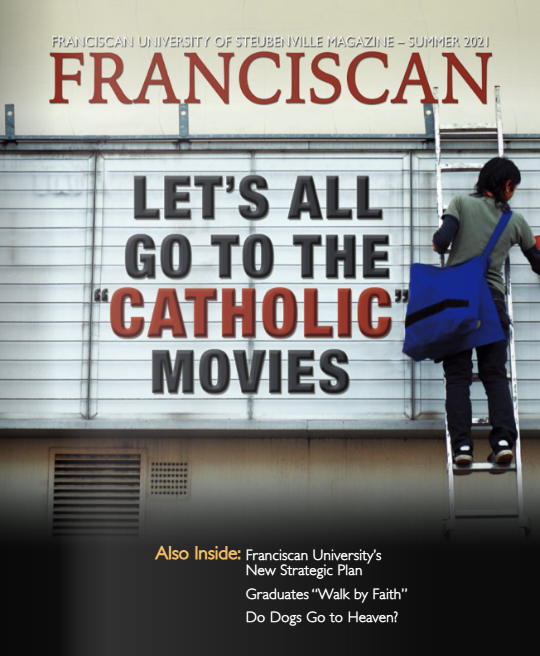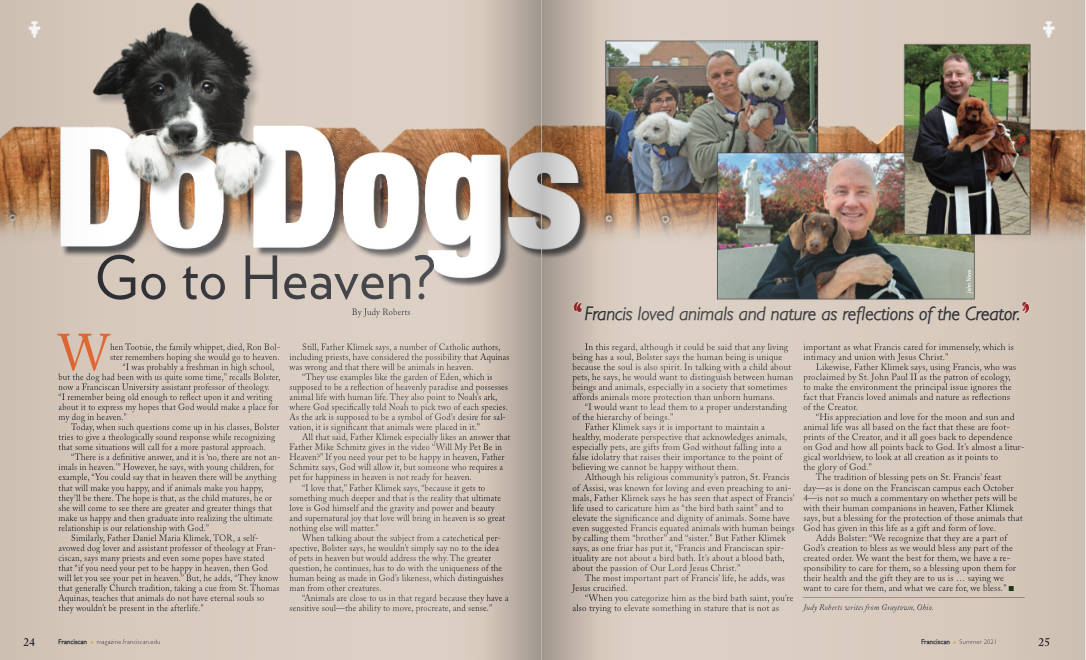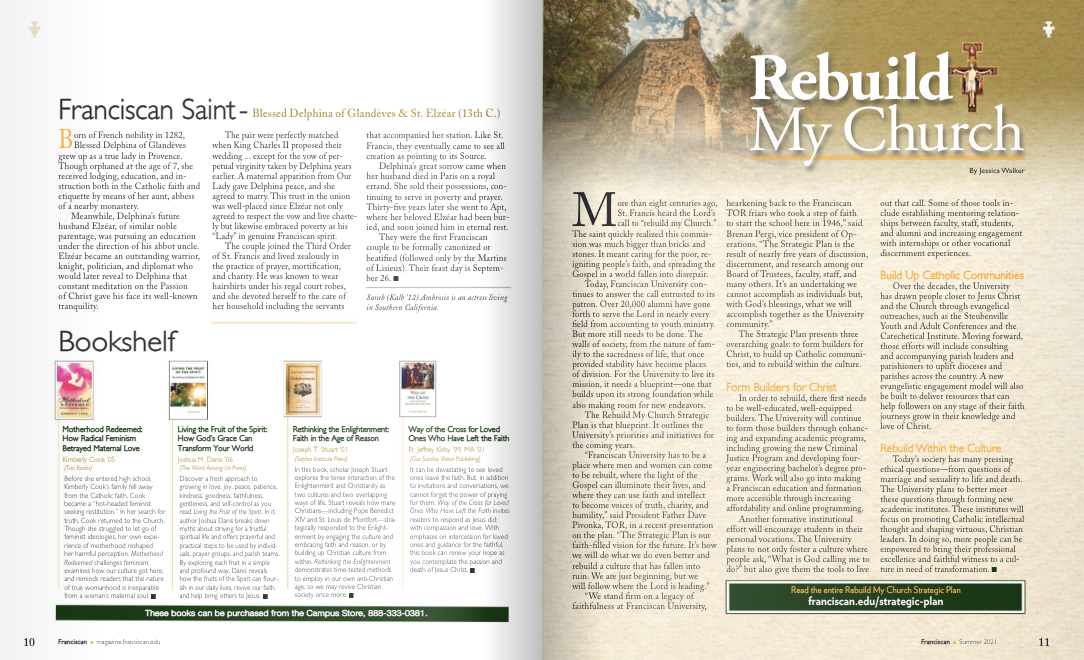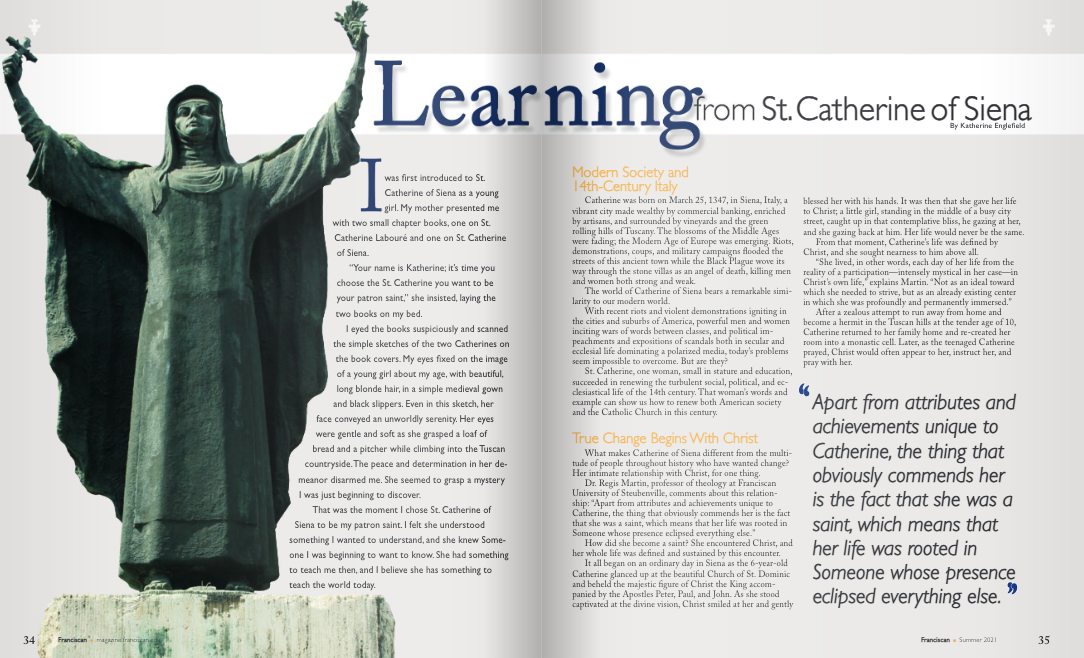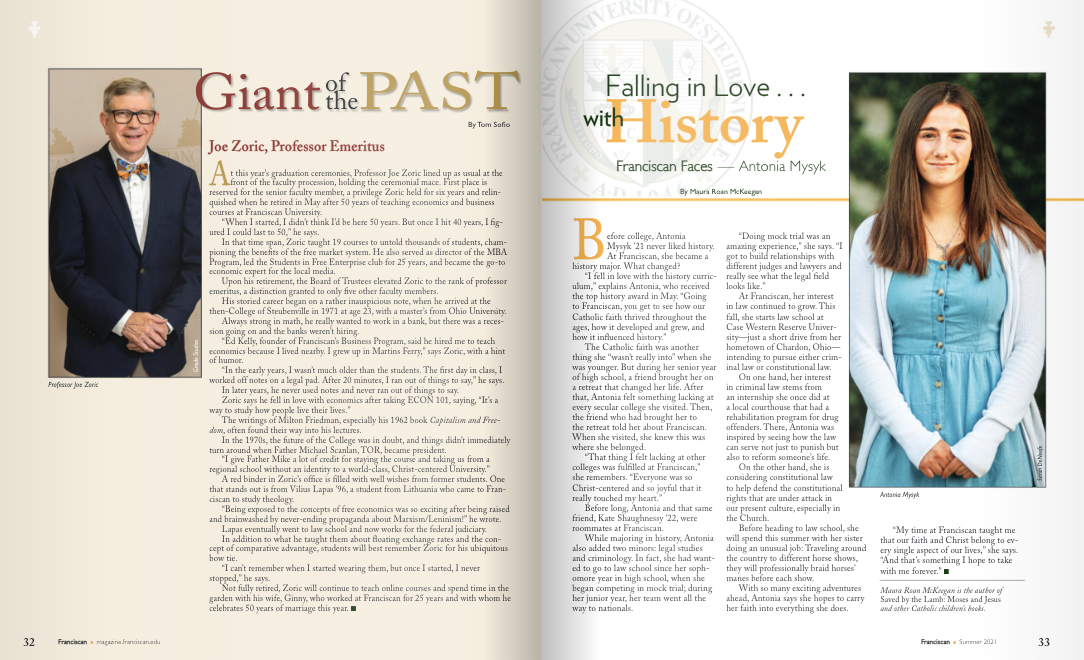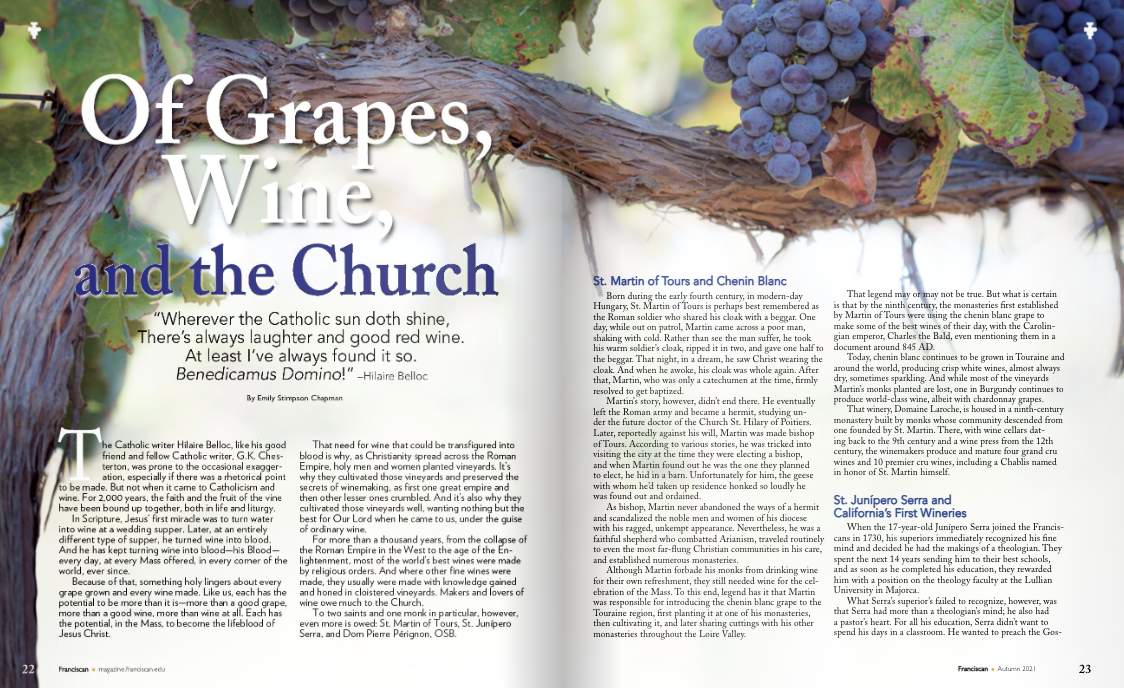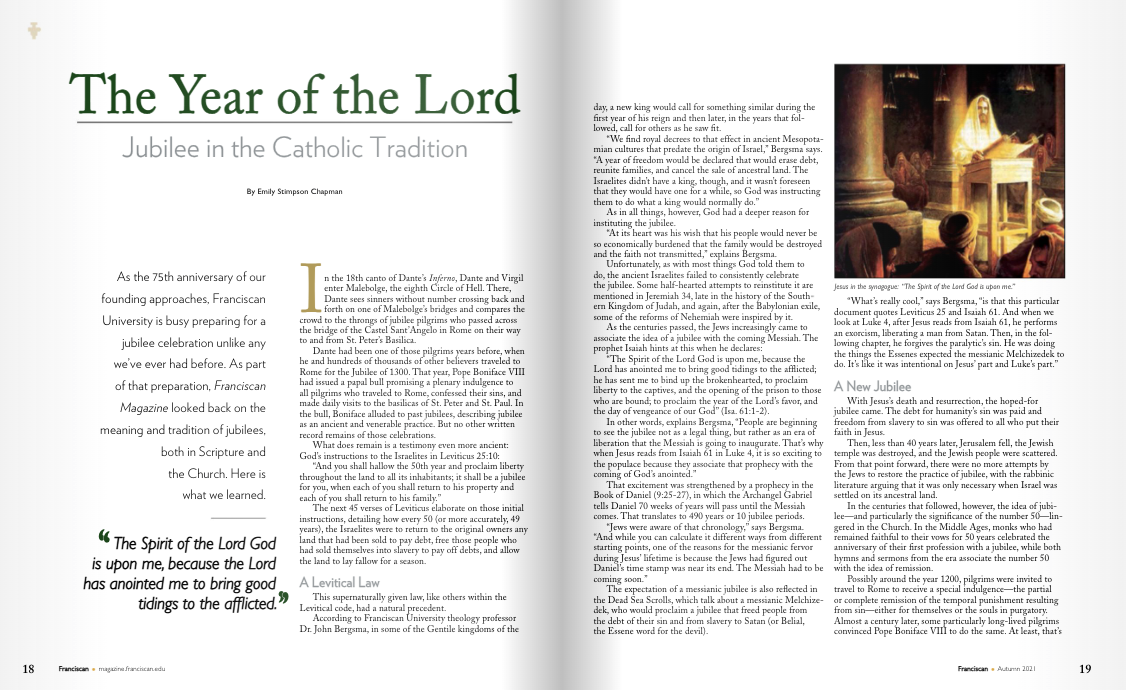When Tootsie, the family whippet, died, Ron Bolster remembers hoping she would go to heaven.
“I was probably a freshman in high school, but the dog had been with us quite some time,” recalls Bolster, now a Franciscan University assistant professor of theology. “I remember being old enough to reflect upon it and writing about it to express my hopes that God would make a place for my dog in heaven.”
Today, when such questions come up in his classes, Bolster tries to give a theologically sound response while recognizing that some situations will call for a more pastoral approach.
“There is a definitive answer, and it is ‘no, there are not animals in heaven.’” However, he says, with young children, for example, “You could say that in heaven there will be anything that will make you happy, and if animals make you happy, they’ll be there. The hope is that, as the child matures, he or she will come to see there are greater and greater things that make us happy and then graduate into realizing the ultimate relationship is our relationship with God.”
Similarly, Father Daniel Maria Klimek, TOR, a self-avowed dog lover and assistant professor of theology at Franciscan, says many priests and even some popes have stated that “if you need your pet to be happy in heaven, then God will let you see your pet in heaven.” But, he adds, “They know that generally Church tradition, taking a cue from St. Thomas Aquinas, teaches that animals do not have eternal souls so they wouldn’t be present in the afterlife.”
Still, Father Klimek says, a number of Catholic authors, including priests, have considered the possibility that Aquinas was wrong and that there will be animals in heaven.
“They use examples like the garden of Eden, which is supposed to be a reflection of heavenly paradise and possesses animal life with human life. They also point to Noah’s ark, where God specifically told Noah to pick two of each species. As the ark is supposed to be a symbol of God’s desire for salvation, it is significant that animals were placed in it.”
All that said, Father Klimek especially likes an answer that Father Mike Schmitz gives in the video “Will My Pet Be in Heaven?” If you need your pet to be happy in heaven, Father Schmitz says, God will allow it, but someone who requires a pet for happiness in heaven is not ready for heaven.
“I love that,” Father Klimek says, “because it gets to something much deeper and that is the reality that ultimate love is God himself and the gravity and power and beauty and supernatural joy that love will bring in heaven is so great nothing else will matter.”
When talking about the subject from a catechetical perspective, Bolster says, he wouldn’t simply say no to the idea of pets in heaven but would address the why. The greater question, he continues, has to do with the uniqueness of the human being as made in God’s likeness, which distinguishes man from other creatures.
“Animals are close to us in that regard because they have a sensitive soul—the ability to move, procreate, and sense.”
In this regard, although it could be said that any living being has a soul, Bolster says the human being is unique because the soul is also spirit. In talking with a child about pets, he says, he would want to distinguish between human beings and animals, especially in a society that sometimes affords animals more protection than unborn humans.
“I would want to lead them to a proper understanding of the hierarchy of beings.”
Father Klimek says it is important to maintain a healthy, moderate perspective that acknowledges animals, especially pets, are gifts from God without falling into a false idolatry that raises their importance to the point of believing we cannot be happy without them.
Although his religious community’s patron, St. Francis of Assisi, was known for loving and even preaching to animals, Father Klimek says he has seen that aspect of Francis’ life used to caricature him as “the bird bath saint” and to elevate the significance and dignity of animals. Some have even suggested Francis equated animals with human beings by calling them “brother” and “sister.” But Father Klimek says, as one friar has put it, “Francis and Franciscan spirituality are not about a bird bath. It’s about a blood bath, about the passion of Our Lord Jesus Christ.”
The most important part of Francis’ life, he adds, was Jesus crucified.
“Francis loved animals and nature as reflections of the Creator. ”
“When you categorize him as the bird bath saint, you’re also trying to elevate something in stature that is not as important as what Francis cared for immensely, which is intimacy and union with Jesus Christ.”
Likewise, Father Klimek says, using Francis, who was proclaimed by St. John Paul II as the patron of ecology, to make the environment the principal issue ignores the fact that Francis loved animals and nature as reflections of the Creator.
“His appreciation and love for the moon and sun and animal life was all based on the fact that these are footprints of the Creator, and it all goes back to dependence on God and how all points back to God. It’s almost a liturgical worldview, to look at all creation as it points to the glory of God.”
The tradition of blessing pets on St. Francis’ feast day—as is done on the Franciscan campus each October 4—is not so much a commentary on whether pets will be with their human companions in heaven, Father Klimek says, but a blessing for the protection of those animals that God has given in this life as a gift and form of love.
Adds Bolster: “We recognize that they are a part of God’s creation to bless as we would bless any part of the created order. We want the best for them, we have a responsibility to care for them, so a blessing upon them for their health and the gift they are to us is … saying we want to care for them, and what we care for, we bless.”
Do you want more resources to nurture your soul and your mind? Visit faithandreason.com for free videos, podcasts, and more from today’s leading Catholic voices on topics that matter to you most.
Judy Roberts writes from Graytown, Ohio.



